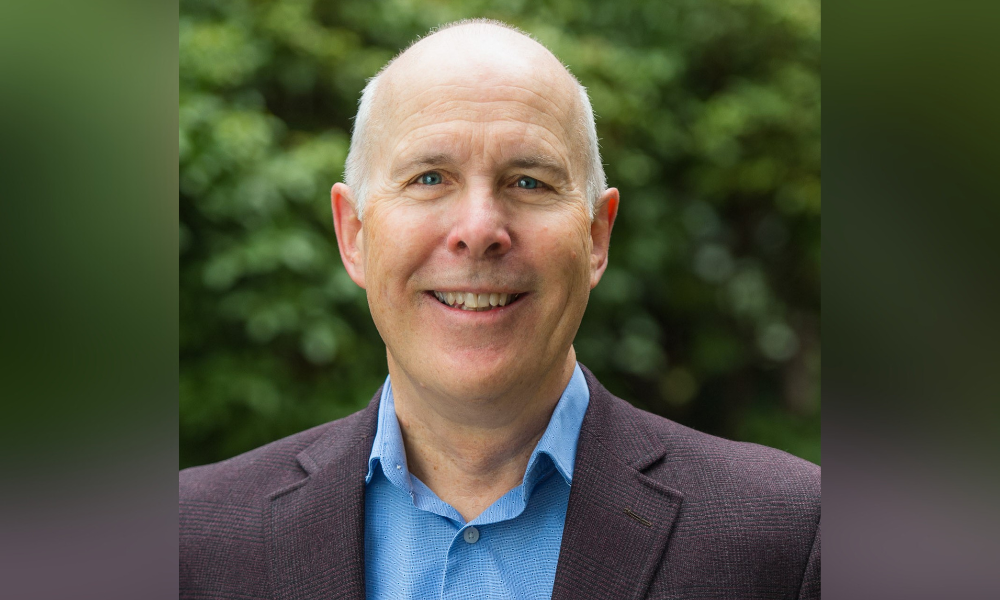Seasoned portfolio manager breaks down principles for keeping clients on an even financial keel

For any financial advisor, job one is to help allay clients’ financial fears. But over the course of his multi-decade career, that hasn’t been a major problem for Robert Parrish.
“Most of our clients don't have what I'd call a screaming sense of anxiety,” says Parrish, managing partner and portfolio manager at Elevate Wealth Management with Quintessence Wealth. “We realized early on that while we're in the financial business, the primary focus of our business is their peace of mind.”
In each client meeting, Parrish says he touches on the volatility of investment markets and how they’re beyond anyone’s control, as well as the strategies the team at Elevate adopts to manage risks. They also emphasize the need for their clients to be honest, both with themselves and with the advisory team, so they can address any concerns as they come up through KYC questionnaires or ongoing conversations.
“All these things help us to get a bit of a snapshot of our clients’ sense of concern,” Parrish says.
Learning clients’ “three o’ clock” number
Over the years, Parrish has found a handful of major factors can impact clients’ sense of financial wellbeing. He refers to their “three o’clock in the morning” number – how much they need in their bank account to feel secure in case something went wrong.
“Some people are happy with a number like $5,000 in the bank; others wouldn't be happy unless that number was $100,000. The number itself doesn’t matter, but I do want to know,” he says. “In conversations, I always ask ‘what’s your bank balance these days?’ and if it’s short, we need to talk about possibly redeeming some of their investments to make up the difference.”
Many first-time clients, he says, are also concerned about the risk of losing everything from investments gone wrong. At worst, Parrish says their investing approach only risks incurring short-term declines in value due to market volatility.
“Our more conservative clients are happy with a 2% to 4% return, but don't want to have their money go down in value ever,” he says. “Others, often younger clients, may want a return of 5% to 7% or more, but they're okay if their money goes down in value during markets like last year.”
By the time they reach their 40s, he says virtually all clients start to question their financial readiness to retire. To that end, he and his partners put together conservative financial plans – usually assuming growth rates below what they believe they can achieve – that project net worth, savings, investments, estate, and other views of a client’s finances into the future.
Stripping away the noise
Because most people don’t have a financial background, Parrish says, they generally can’t separate irrelevant details from the facts that matter. As a financial planner, he spends much of his time helping clients avoid getting bogged down in minutiae, and instead focus on important central questions.
While he comes to every conversation armed with an agenda, he always begins by asking clients if there’s anything they want to talk about. With an estimated four fifths of their client relationships stretching back 20 years or more, he’s usually able to pick up on changes in a client’s circumstances, envision the different ways they would be impacted, and pinpoint which ones would affect their finances.
“I can take a situation that might, to them, seem fairly complex, and eliminate some of the noise to help simplify the situation,” he says. “That makes it easier for them to make a decision with confidence.”
Aside from being a CFP professional, Parrish holds the Certified Professional Consultant on Aging designation. While they’ve certainly provided value within his practice, he eventually realized that the designations themselves didn’t matter to clients.
“No one ever asks me about them. … Over the years, I realized what’s important to them is: Do you know what you're talking about? And how can you help me?” he says. “I still want to learn as much as I can about seniors and our other clients – how they think, what impacts them. But I don’t make a point of promoting my designation, other than having it in the footer of my email.”
While Parrish earned his CFP designation early on, it wasn’t until much later that he realized the true worth of financial planning.
“In the ‘90s, the industry was still very focused on comparing investment A to investment B, and showing clients which did better, and promoting yourself as a better advisor than others,” he recalls.
“But when we started to focus on creating financial plans for clients, we saw a dramatic increase in their sense of confidence and well-being.
“That's probably one of the main reasons why so many clients have been with us for 20 years,” he says. “They trust that our recommendations, decisions, and advice are all in their best interest. And that's all they want.”



